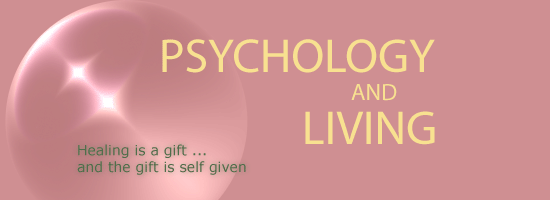Mental illnesses, especially psychoses have been traditionally viewed by modern western medicine as chemical/physical in nature and this viewpoint forms the foundation of treatment/management options. For example Schizophrenia may often begin with an acute psychotic episode followed by ongoing chronic symptoms. The allopathic medical model will treat the acute episode with rest and medication, to dampen the psychotic hallucinations. A diagnosis is eventually made by a psychiatrist and an ongoing management plan for the diagnosed condition then begins. The plan will involve such things as: prescription of medication (psychotropic drugs), other medications as indicated; monitoring the response and, if needed, changing medications or doseages; rest; behaviour management strategies such as Cognitive Behaviour Therapy; lifestyle changes to decrease stress and allow the person to live with the condition in the context of what is manageable and acceptable within our western culture.
The diagnosis by the psychiatrist is made with the aid of a book titled "The Diagnostic and Statistical Manual of Mental Disorders". The current text is version 4 including a recent text revision, so this diagnostic aid is usually called the DSM-IV TR. Diagnoses are necessarily subjective because there is no underlying physical basis of most or all the conditions listed in the DSM-IV. The strategy of managing the symptoms with psychotropic drugs is useful in that it can prevent such things as physical injury or even suicide during acute episodes. As an ongoing management plan the medical drugs can also allow the person some level of self controlled existence within the rules of our culture. It is useful to also remove our cultural blinkers and, in this wider perceptive mode, consider other possible explanations of psychotic and even many other types of our labelled illnesses. Two psychiatrists who removed their blinkers are Dr. Stanislav Grof and his wife Christina Grof.
Dr. Grof and Christina became frustrated with the often poor prognosis for many patients treated according to the assumptions underlying the modern medical model of mental illness. They wondered if there were other valid explanations of the phenomena. Their line of enquiry eventually lead them to an appreciation of what they termed Spiritual Emergencies. They found, that for some individuals, a better explanation of the psychotic symptoms was that the person was experiencing a rapid spiritual growth episode and this explanation leads to an entirely different management plan for the symptoms.
In the current DSM-IV there is a relatively new category "Religious or Spiritual Problem" authored by David Lukoff, PhD. but due in part to the pioneering work of Dr. Grof and Christina who first developed the following criteria for ascertaining spiritual emergence and spiritual emergency:
- Episodes of unusual experiences that involve changes in consciousness and in perceptual, emotional, cognitive, and psychosomatic functioning, in which there is a significant transpersonal emphasis in the process, such as dramatic death and (re)birth sequences, mythological and archetypal phenomena, past incarnation memories, out-of-body experiences, incidence of synchroniciaties or extrasensory perception, intense energetic phenomena (Kundalini Awakening), states of mystical union, identification with cosmic consciousness.
- The ability to see the condition as an inner psychological process and approach it in an internalized way; the capacity to form an adequate working relationship and maintain the spirit of cooperation. These criteria exclude people with severe paranoid states, persecutory delusions, and hallucinations; and those who consistently use the mechanism of projection, exteriorization and acting out. (Grof & Grof, 1986).
The new category in the DSM-IV "V62.89 Religious or Spiritual Problem" suggests the use of this category when the 'focus of clinical attention is a religious or spiritual problem'. Some examples given are, distressing experiences concerning loss or questioning of faith, questioning of spiritual values such questioning not necessarily being related to an organised church or religious institution, problems related to conversion to a new faith.
When all of the criteria mentioned immediately above are considered it would seem that an individual truly experiencing a spiritual or religious crisis who is diagnosed as exhibiting a psychotic and especially a chronic psychotic mental illness may find themselves in an unfortunate situation. Their spiritual emergence processes would be treated as psychotic symptoms and they may be given anti-psychotic medications for a significant portion of the remainder of their lives. Dr. Grof and Christina Grof were able to help individuals experiencing spiritual emergencies/emergence by an initial more adequate diagnosis and then a treatment regime that did not thwart the symptomology with medical drugs.
Other practitioners are now devising new methods to help individuals in spiritual crises. One person at the forefront in this area is Emma Bragdon. She has authored publications in this area including 'A Sourcebook for Helping People With Spiritual Problems'. Information about her books is here.


